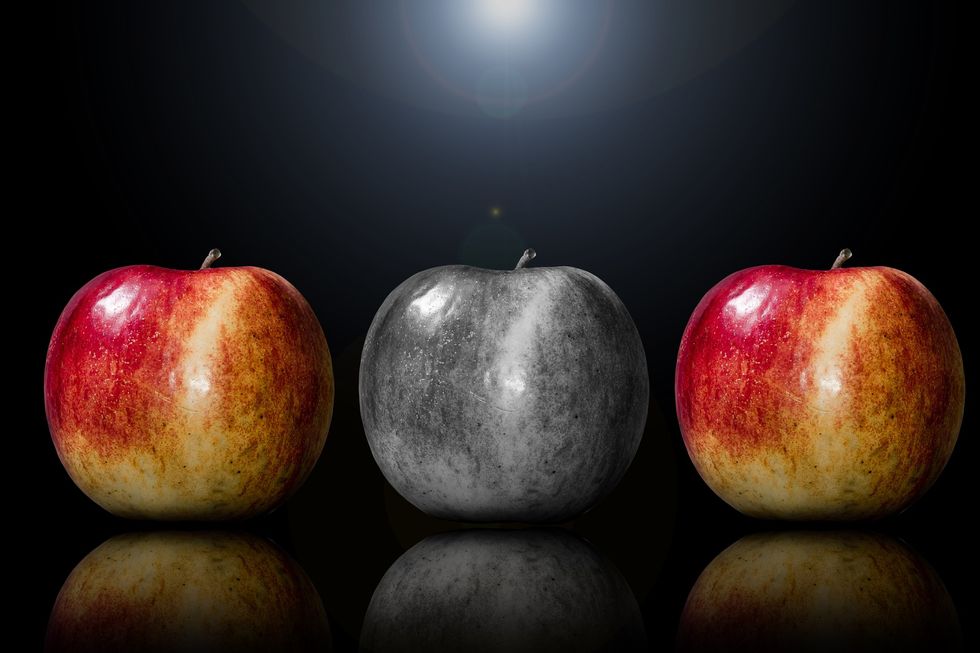I have often tried to discuss privilege with all sorts of different people: peers, family members, friends, and even strangers. The most often attack against the word 'privilege' is in the literal sense that people treat it. When people think of privilege, they most often describe what a quick google search would tell you "grant a privilege or privileges to". But what people don't understand is that the social definition of privilege has nothing to do with financing, where you live, or even really you, individually, as a person. What the sociological term really means is that you have access to something that others do not, or you can do something that others cannot, either because of the other person's or your race, gender, class, or sexuality.
Another facet of privilege that most people do not understand is that privilege is not something you attach to your resume, or add to your name tag. Privilege for the most part is something that people do not acknowledge. You don't go up to another person and say "Hey, I am so-and-so, and I am privileged!". And that's because, for the most part, people don't like to think of themselves as privileged, but the simple truth is that we all have privilege in some way.
Privilege can only exist in a society where there are majority groups. For example, let's talk about able-bodied people versus people of the disabled community. If you are reading this article, and you are an able-bodied person, meaning you have no disabilities, then you have privilege. Simply by reading this article, which has been written and geared towards people who can see, you are displaying privilege. No, that does not mean that you are inherently an awful person because you have privilege, but it is something that you should acknowledge.
An able-bodied person would never think twice about walking up the stairs, they might groan about the exercise, but otherwise they do it. Compare to a person in a wheel-chair. They need to get to the second-floor and they obviously can't go up the stairs, at least not without assistance. They have to find another way up to the second floor. Which means they have to wheel around the building, searching for an elevator. meanwhile, while they are searching, the time is growing closer and closer to that appointment they must get to.
Can you see the privilege?
The person in the wheel chair's entire day is changed if they can't find another way to second floor, but you, an able-bodied person, can trudge your way up the stairs. Is it fair? No, more buildings should be handicap accessible. Is the blame all on you? No, in fact the blame can be placed on many people, those who have ignored the plights of the disabled community for better access into public buildings. Does this make you privileged? YES. Because you can go into any public building and do what you need to do without a thought about the stairs.
If you want to see a visual representation of this, here is a video that I highly recommend: http://abcnews.go.com/Lifestyle/video/man-cerebral...
Thinking about privilege is as easy of thinking about this entire scenario.
You can apply this thought process to literally every other facet of you social identity. Think about you. What is your race? What is your gender? What is your class (wealth, income, education, etc.)? What is your sexuality? Has there been any moment in your life where you got a job over someone else? Where you were able to go somewhere that someone else was not able to go? Where you did something and were praised for it and another person did something and was reprimanded?
Did you think about the situation? Or did you just brush it off as that was how things are? If you did the latter, then you were accepting everything that society has said.
That women belong in the home, not in the workplace.
That if you are gay, then you are wrong.
That if you are black, then you are lesser.
That if you are poor, then you didn't try hard enough.
That if you can't get up the stairs, then that is your problem.
This is what privilege is, and this is how society makes us accept it. They tell us that certain things are normal, and that if you are a part of the majority then you don't have to think about the problems of the minority groups. Because our society is based off of an "Us versus Them" dichotomy. If you are a part of the larger "Us", then the concerns of "Them" are not your problem. If you are a part of the larger able-bodied population then you might think it is normal to not worry about the concerns of the smaller, disabled population.
But does this mean that this how it should always be?
Hell no!
Instead of dividing each other, and looking out only for us and our groups, we should be working together, using our privilege to help those that are hurt by it. If you see a public building with no handicap accessibilities, say something! Recognize that you have privilege and use it to help people that are often ignored or brushed aside by the rest of the world.
The smallest things help, and you can only see the lasting effects if you put in the effort.
"What is a legacy? It's planting seeds in a garden you'll never get to see."
"The World Was Wide Enough",Hamilton Musical
Credit to: Lin-Manuel Miranda

















